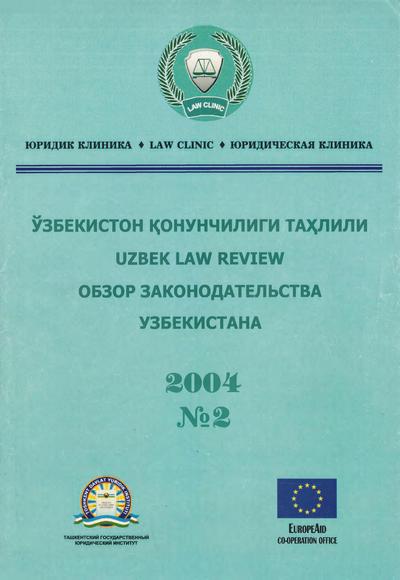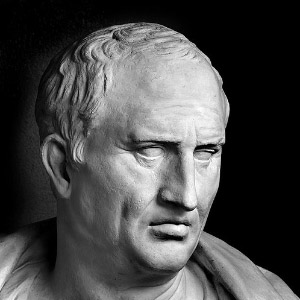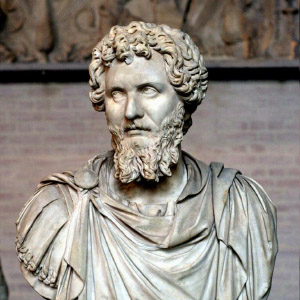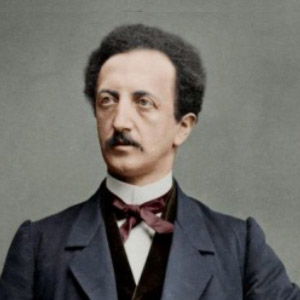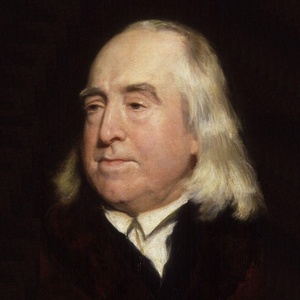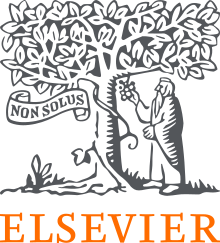Adolph A. Berle. Corporate Powers as Powers in Trust // Harvard Law Review. 1931. No44. P.1049; E. Merrick Dodd. For
whom are Corporate Managers Trustees? // Harvard Law Review. 1932. No45. P.1145; Adolph Berle. For whom Corporate Managers are Trustees: A Note // Harvard Law Review. 1932. No45. P.1365; Adolph A. Berle. Power without Property: a New Development in American Political Economy. - Boston, 1959. P. 107-110.
Edward Mason. The Corporation in Modern Society. - NY, 1959.
Holmstrom B. and Tirole J. The Theory of the Firm // Schmalensee R. and Willig R.D. (eds.). Handbook of Industrial Organisation. - Vol.1.- North-Holland, 1991. P.306.
Marleen A. O'Connor. Restructuring the Corporation's Nexus of Contracts: Recognizing a Fiduciary Duty to Protect Displaced Workers// N.C. L. Rev. 1991. No69. P.1189.
David Millon. Default Rules, Wealth Distribution and Corporate Law Reform: Employment at Will versus Job Security // U. PA. L. Rev. 1998. No146. P.975.
Proposal for a Fifth Company Law Directive. - O.J., 1983.
Michael E. DeBow & Dwight R. Lee. Shareholders, Non shareholders and Corporate Law: Communitarianism and Resource Allocation // Del. J. Corp. L. 1993. No18. P.393, 395.
Henry Hansmann. Supra note 2. P.89-119; Henry Hansmann. Worker Participation and Corporate Governance // University of Toronto Law Journal. 1993. No43. P.589-606; Henry Hansmann. Probleme von Kollektiventscheidungen und Theorie der Firma. Folgerungen für die Arbeitnehmermitbestimmung / Claus Ott and Hans-Bernd Schäfer, editors. - Ökonomische Ana lyse des Unternehmensrechts, 1993. P.287-305. On the weak nesses of German boards, see, e.g., Mark Roe. German Securities Markets and German Codetermination // Columbia Business Law Review. 1998. No98. P.167.
Michel Albert. Capitalism vs. Capitalism. -1993. - P.169-190.
William T. Allen. Contracts and Communities in Corporation Law//Wash. & Lee L. Rev. 1993. No50. P.1395-1400.
Andrew Shonfield. Modern Capitalism: the Changing Balance of Public and Private Power. - Washington, 1967.
Ronald J. Gilson and Mark J. Roe. Lifetime Employment in Japan: Labor Peace and Corporate Governance. Corporate Governance Today. - New York: Columbia Law School, 1998. P.67.
Ronald J. Gilson and Mark J. Roe. Understanding the Japanese Keiretsu; Overlaps between Corporate Governance and Industrial Organization // John M (ed.). Olin Program in Law and Economics. 1993. No. 97. P.89.
Kaen Fred R. A Blueprint for Corporate Governance: Strategy, Accountability, and the Preservation of Shareholder Value. - NY: Amacom, 2003. P.985.
Michael Klausner. Institutional Shareholders1 Split Personality on Corporate Governance: Active in Proxies, Passive in IPOs // Stanford Law and Economics Olin Working Paper. No.225. - November 2001. P.87.
Margaret M. Blair & Lynn A. Stout. A Team Production Theory of Corporate Law//VA. L. Rev. 1999. No85. P.247.
Company Law Reform Steering Group. Modern Company Law for a Competitive Environment: The Strategic Framework. - March 1999. P.39-46.
Reinhard H. Smith and Gerald Spindler. Path Dependence, Corporate Governance and Complementarity. A Comment on Bebchuk and Roe // The Johann Wolfgang Goethe Universitat Working Paper Series. Finance and Accounting. 1999. No. 27. P.14.
Ronald J. Gilson. Globalizing Corporate Governance: Convergence of Form or Function // Stanford Law & Economics. Olin Research Paper. 2000. No.192. P.16; Columbia Law and Economics Working Paper. - May 2000. No.174. P.16.
Paul G. Mahoney. Contract or Concession? A Historical Perspective on Business Corporations // Working Paper. University of Virginia School of Law. 1999. P.46.
Jones Thomas M. Corporate Governance: Who Controls the Large Corporation? // Hastings Law Journal. 1979. No30. P.1261-1286.
Coppock R. and Dierkes M. Corporate Responsibility does not Depend on Public Pressure // Business and Society Re- view/lnnovation. 1973. N6. P.82-89.
Dierkes M. Corporate Social Reporting in Germany: Conceptual Developments and Practical Experience // Accounting, Organizations and Society. 1979. No4(1/2). P.87-107.
Lea David. Corporate and Public Responsibility, Stakeholder Theory and the Developing World // Business Ethics: A European Review. 1999. No8(3) (July). P.151-162.
Hamil Sean. Corporate Community Involvement: A Case for Regulatory Reform // Business Ethics: A European Review. 1999. No8(1) (Jan.). P. 14-25.
Aghion P. and Bolton P. An ‘Incomplete Contracts’ approach to Financial Contracting // Review of Economic Studies. 1992.No59. P.257-282.
Hill Charles W. L. and Thomas M. Jones. Stakeholder Agency Theory// Management Studies. 1992. No29 (2). P.131-154.
Burkart M., Gromb D. and Panunzi F. Large Shareholders, Monitoring, and the Value of the Firm // Quarterly Journal of Economics. 1997. No112(3). P.693-728.
Demsetz H. and Lehn K. The Structure of Corporate Ownership: Causes and Consequences // Political Economy. 1985. No93. P.1155-1177.
Kang J. and Shivdasani A. Firm Performance, Corporate Governance, and Top Executive Turnover in Japan // Journal of Financial Economics. 1995. No38. P.29-58.
Preston L.E., and Harry J. Sapienza. Stakeholder Management and Corporate Performance // Behavioral Economics. 1990. No19(4). P.98-114.
Steadman Mark E. and Sharon H. Garrison. The Impact of Stakeholder Theory on the International Firm: A United States vs. Japanese Comparison // International Journal of Management. 1993. No10(3). P.325-331.
Michael T. Jacobs. Short-term America: the Causes and Cures of our Business Myopia. 1991. P. 137.
Jones Thomas M. Instrumental Stakeholder Theory: A Synthesis of Ethics and Economics // Academy of Management Review. 1995. No20. P.404-437.
World’s Most Respected Companies H Financial Times Web Site. - December 17, 1999.
Upchurch Randall S. A Conceptual Foundation for Ethical Decision Making: A Stakeholder Perspective in the Lodging Industry (U.S.A.) 7/ Journal of Business Ethics. 1998. No17(12)(Sept). P.1349-1361.
Roman Frydman, Marek Hessel and Andrzej Rapacyznski. Why Ownership Matters? // Entrepreneurship and the Restructuring of Enterprises in Central Europe. - Working Paper. - April 1988.
Berman Shawn L., Andrew C. Wicks, Suresh Kotha and Thomas M. Jones. Does Stakeholder Orientation Matter? The Relationship between Stakeholder Management Models and Firm Financial Performance // Academy of Management Journal. 1999. No42(5) (Oct.). P.488-506.
Lea David. Corporate and Public Responsibility, Stake holder Theory and the Developing World // Business Ethics: A European Review. 1999. No8(3) (July). P.151-162.
Brenner Steven N. and Cochran P.L. The Stakeholder Theory of the Firm: Implications for Business and Society Theory and Research // International Association for Business and Society Proceedings. 1991. P.449-467.
Coppock R. and Dierkes M. Corporate Responsibility does not depend on Public Pressure // Business and Society Review / Innovation. 1973. No.6. P.82-89.
Dierkes М. 1992: A New Challenge te the Social Rôle of Business//Atlantic Economie Journal. 1992. No18(3). P.38-41.
Carroll Archie B. Corporate Social Responsibiîity: Evolution of a Definitional Construct H Business & Society. 1999. No38(3) (Sept.). P.268-295.
Carroll Archie B. The Pyramid of Corporate Social Responsibility: Toward the Moral Management of Organizational Stakeholders//Business Horizons. 1991. No34(4). P.39-48.
Cm.: Child James W. and Alexei M. Marcoux. Freeman and Evan: Stakeholder Theory in the Original Position H Business Ethics Quarterly. 1999. No9 (2) (April). P.207-224.
School Brief: Stocks in Trade H The Economist. - November 13, 1999. P.85-86.
Coffey Betty S. and Jia Wang. Board Diversity and Managerial Control as Predictors of Corporate Social Performance // Journal of Business Ethics. 1998. No17(14) (Oct.il). P.1595-1603.
Carroll Archie B. A Three-Dimensional Conceptual Model of Corporate Social Performance // Academy of Management Review. 1997. No4. P.497-505.
Carolyn Kay Brancato. Institutional Investor Concentration of Economic Power and Voting Authority in U.S. Publicly Held Corporations. - September 12, 1991. Unpublished study.
Save Amigo Save // The Economist. - 9 December 1995. P.S15; A Private Affair // Latin Finance. December 1998. P.6; Stephen Fidler. Chiles Crusader for the Cause // Financial Times. -March 14,1997.
Clarkson M.B.E. The Toronto Conference: Reflections on Stakeholder Theory // Business & Society. 1994. No33(1) (April). P.82-131.
Stewart J. Schwarn and Randall S. Thomas. Realigning Corporate Governance: Shareholder Activism by Labor Unions // S. Estreicher (ed.). Employee Representation in the Emerging Workplace: Alternatives/Supplements to Collective Bargaining. 1998. P.164.
Ronald J. Gilson and Alan Schwartz. Sales and Elections as Methods for Transferring Corporate Control // Theoretical In quiries in Law. 2001. P.783-814.
Greg Steinmetz and Michael R. Sesit. Rising U.S. Invest ment in European Equities Galvanizes Old World // Wall Street
Journal. 1999. No4 (August). P.A1-A8.
Goodpaster Kenneth E. Business Ethics and Stakeholder Analysis // Business Ethics Quarterly. 1991. - No1(1). P.53-72.
Haig Simonian. Germany to Abolish Tax of Disposal of Cross-holdings // Financial Times. - December 24, 1999. P.1; Paul Abrahams and Gillian Tett. The Circle is Broken // Financial Times. - November 9, 1999. P.18.
Каримов И.А. Жить заботами и интересами людей - основной критерий нашей деятельности: Доклад на заседании Кабинета Министров о ходе реализации установленных приоритетов и заданий по развитию экономики Узбекистана за первое полугодие 2002 г. от 18.07.2002 г. // Народное слово.19.07.2002 г.
Информационно-аналитический бюллетень (ИАБ) за 2003г. Госкомимущества РУз «Приватизация и развитие частного сектора экономики». - Т., 2004. С. 10.
Перечень предприятий, в уставном фонде которых сохраняется от 25 до 51 процента акций (долей) в собственности государства. Приложение N 3 и Приложение N 4 к Постанов лению КМ РУз от 17.04.2003г. N 185 (с изменениями от 18.02.2004г. N 76) // ИПС “Норма” от 24.04.2004.
там же. П.1.
Постановление Кабинета Министров Республики Узбекистан "О мерах по совершенствованию управления государственной собственностью" от 05.07.2000г, N 257 // ИПС “Норма” от 24.04.2004.
Приложение N 5 к Постановлению КМ РУз от 22.08.1998г. N 361 "Порядок передачи в доверительное управление государственных пакетов акций" // ИПС “Норма” от 24.04.2004.
Указ Президента Республики Узбекистан "О мерах по кардинальному увеличению доли и значения частного сектора в экономике Узбекистана" от 24.01.2003г. N УП-3202 // ИПС “Норма” от 24.04.2004.
См. там же.
П. 8 Положения "О государственных поверенных в акционерных обществах". Приложение N 2 к Постановлению КМРУз "О мерах по совершенствованию корпоративного управления приватизированными предприятиями" от 19.04.2003г. N 189 // ИПС “Норма” от 24.04.2004.
Закон РУз "Об акционерных обществах и защите прав акционеров" от 26.04.1996г. N 223-1 // ИПС “Норма” от 24.04.2004.
OECD Principles of Corporate Governance. Organization for Economic Cooperation and Development. 2004.
4.6 ст.9 Закона РУз "Об акционерных обществах и защите прав акционеров".
Каримов И.А. Об итогах развития экономики и соци альной сферы за первое полугодие 2003 года и реализации мер по важнейшим приоритетным направлениям реформ в этих сферах. Доклад на заседании Кабинета Министров 18.07.2003г. //Народное слово. 19.07.2003г.
П.п. 15, 16 Положения "О государственных поверенных вакционерных обществах".
Kuznetsov Р., Muravyev A. Ownership Structure and Firm Performance in Russia: The Case of Blue Chips of the Stock Market// Economics Education and Research Consortium. // Working Pa per Series. - Working Paper No 01/10. 2001. P. 6.
П. 5 ст. 1 Закона РФ "Об акционерных обществах". В ред. Федерального Закона от 07.08.2001 N 120-ФЗ.
Ионцев М.Г. Акционерные общества: правовые основы. Имущественные отношения. Управление и контроль. Защита прав акционеров. - 2-е изд., перераб. и доп. - М.: "Ось-89", 2003. С. 289.
См.: там же.
Gioia Dennis A. Response: Practicability, Paradigms, and Problems in Stakeholder Theorizing // Academy of Management Review. 1999. No24(2) (April). P.228-232.
Earley P. Christopher and Elaine Mosakowski. Creating Hybrid Team Cultures: An Empirical Test of Transnational Team Functioning // Academy of Management Journal. 2000. No43(1) (Feb.). P.26-49.
